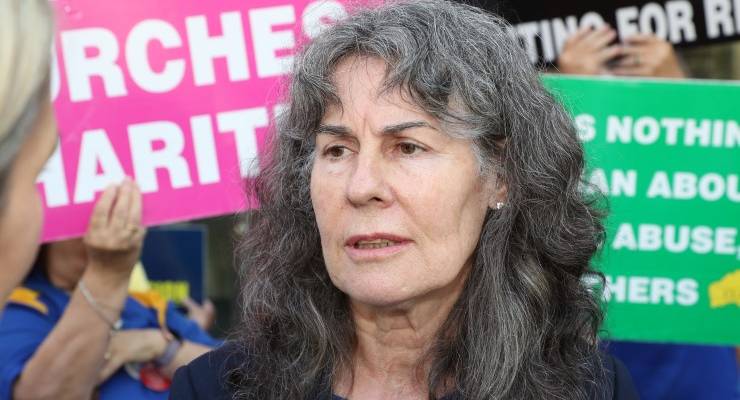
Note: this story discusses child sexual assault.
The prime minister stands accused of failing to deliver on a promise he made three years ago to survivors of child sex abuse to provide a national centre dedicated solely to their needs.
Scott Morrison made the pledge during his national apology speech to survivors in August 2018. The centre would be “a place to assist with lasting change”, he said. Its remit would include helping survivors “deal with the stigma” and help “guide best practice for training and other services”.
“We were floored at the prospect,” said Adam Washbourne from Fighters Against Child Abuse Australia, who was in Parliament that day and whose organisation provides counselling and psychiatric services to survivors of child abuse.
“We thought it was amazing. We have 150,000 followers on our social media page. We take it very seriously.”
Crikey’s inquiries show the national centre of excellence has gone through a process worthy of Utopia, the ABC’s satire of government paralysis.
- 2017: the McClellan royal commission said there should be a national centre focusing on survivors, as recommendation 9.9 in its final report of 2017. It said the centre “should partner with survivors in all its work, valuing their knowledge and experience”
- 2018: Morrison announced in August 2018 that the government would back the centre, which would be established with funding from state and territory governments
- 2019: in the shadow of the election, the federal government promised $22.5 million for the project
- 2020: in September the Social Services Department put out a request for expressions of interest
- 2021: in May Morrison announced a national strategy to prevent child sex abuse. About $100 million of $146 million is allocated to law enforcement — but no mention of a centre for survivors.
Somewhere along the line the national centre for survivors became badged as the national centre for excellence in the prevention of child sex abuse. The shift happened without explanation.
“It’s disappointing,” said Chrissie Foster, whose family was torn apart by the actions of a Melbourne priest and who has since become a prominent survivors’ advocate. “It seems to have disappeared without a word.”
Foster’s story is among the most horrific to emerge from the royal commission. Two of her daughters aged between five and seven were sexually abused in the 1990s.
“What concerns me is that recommendation 9.9 was specifically for survivors,” she told Crikey. “The government has changed the focus to be on prevention when there are already lots of programs for prevention. My feeling is that taking the focus away from survivors means that fewer survivors will come through.”
Washbourne says the government has been “quite silent” on the fate of the centre: “It’s a slap in the face for survivors. Our supporters were hyped up then let down.”
Social Services tells Crikey that “a competitive procurement process” was “currently being finalised” and the national centre was “expected to be operational by the end of 2021”.
Why the name change?
“The royal commission identified prevention of child sexual abuse as a critical gap in the current evidence and skill base,” it said. “In March 2019 the Australian government expanded the remit of the national centre’s scope to include prevention, recognising that the safety of all Australians is a priority.”
It also referred to “extensive national consultations with survivors” and state and territory governments in line with recommendations from the royal commission.
It seems, though, that someone forgot to tell survivor groups what was happening.
Survivors of abuse can find support by calling Bravehearts at 1800 272 831 or the Blue Knot Foundation at 1300 657 380. The Kids Helpline is 1800 55 1800. Further support is available at Lifeline is on 13 11 14 and Beyond Blue is 1300 22 4636.
Survivors and Mates Support Network (SAMSN) provides support for male survivors of child sexual abuse.
If you or someone you know is impacted by sexual assault or violence, call 1800RESPECT on 1800 737 732 or visit 1800RESPECT.org.au








Morrison is adept at one thing ie: declarations. He knows words are cheap & can assuage the masses in the short term…while he hopes they have poor memories in the longer electoral term.
I recall wise advice from a father to his young daughter about choosing a partner ie: don’t take notice of what he says but of what he does. Am now scratching my head trying to think of anything Morrison has done during his term as Prime Minimal.
The ‘PM’ (Scott M) is focused on the perpetrators but not on the survivors. From a pure $ and cents view (which is necessary if we are to make a genuiine attempt to support abuse survivors), the funds promised for one purpose have been substantially repurposed for a task that does NOTHING for abuse survivors.The arrest and conviction rate of child abusers is very low and PM’s approach will not solve/resolve anything. PM is all piss and wind.
Another case of our Marketing PM.
Good at Announcements. Poor at Delivery.
Why are we surprised
Scomo he is the best liar and shonk Australia has produced a dud every day of week
I do not know where Chrissie Foster draws her strength from. Respect for her, especially in the face of this government failure.
Just further evidence that Morrison is full of nothing but sh*t.
We have to remember that the cult to which Morrison adheres is embroiled in a paedophile court case